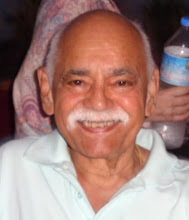The world is full of liars. Politicians
lie. Bankers and business-men are economical with the truth and
most people tell fibs at least some of the time.
Liars seek to justify their
dishonesty. "It was only a white lie" or "I lied because I didn't
want to hurt you".
In fact, the truth is more likely to hurt
the liar, because the lie seeks to cover up a lapse of morals, ethics or
legality.
Most people lie for self-interest and only
when this is threatened. A few people lie almost all of the time, even when
there's no personal benefit.
Billy Wilder's film, Witness for the
prosecution, contained a court room scene, in which Sir Wilfred, a defence
barrister, played by Charles Laughton, is cross examining a hostile
witness Mrs Helm and catches her out in a series of lies.
The lady's portrayed brilliantly by Marlene
Dietrich is then finished off by Sir Wilfred so:
"And now today you've told us a new
story entirely", his tone changing from humorous to serious, "The
question is, Frau Helm, were you lying then, are you lying now, or are you not
in fact a chronic and habitual LIAR?"
He wins his case, but because the film is
based on a short story by Agatha Christie, there is a twist in the tail.
Chronic liars tell the truth when it suits
them, when very drunk, frightened or extremely angry.
How can you deal with liars?
If life was simple, you could avoid the
proven liar altogether. In a more realistic situation, consider if the liar's
statement could be a lie. If it is a lie, then is it a casual
purposeless one or a deliberate lie told with purpose.
If you think it is, then ask yourself what
could the motive be? Examine the possible alternatives and decide the level of
importance each carries and how they affect you.
My Dad gave me a piece of valuable advice:
If you must lie, hope you have a good memory.
Walter Scott said it more poetically :
"Oh what a tangled web we weave, when first we practice to deceive".


No comments:
Post a Comment